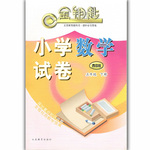题目内容
Teaching is an art ________ on a science.
- A.written
- B.came
- C.based
- D.expressed

 金钥匙试卷系列答案
金钥匙试卷系列答案By the third year of teaching I’d begun to expect Christmas break more for the school holiday and less for the excitement of the children. I was teaching fourth grade and my students had made me 16 . I just had to get through one of the hardest days of the school year.
The morning bell rang. I walked 17 through the cold into the overly heated school building. Twenty-two smiling faces 18 me at the school bus stop. I forced myself to 19 their smiles. Back into the classroom, they 20 , comparing plans for the 21 . I had to remove one student from each arm 22 I could take a seat at my desk for my morning duties. Before I could find my roll book(点名册) my desk was covered with 23 and gifts followed by a 24 of “Merry Christmas” wishes.
“Oh, thank you,” I must have 25 a million times. Each gift was truly special to me, except my 26 mood. It was kind of them to 27 me. After a while, I heard a small nervous 28 say my name. I looked up to see Brandon standing 29 by my desk, holding a small, round gift. “This is for you.”
“Thank you, Sweetheart.” I laid it on my desk with the others.
“Um, could you 30 it now?”
I gently tore at the pa per and tape. “ 31 ,” he said, “it’s breakable.” Slowly I opened a small, green Christmas tree ornament(装饰物), complete with a hook already 32 . It dawned on me what he had done. Then a nearby student said that he just pulled that off his own tree. I tried to keep my 33 back.
per and tape. “ 31 ,” he said, “it’s breakable.” Slowly I opened a small, green Christmas tree ornament(装饰物), complete with a hook already 32 . It dawned on me what he had done. Then a nearby student said that he just pulled that off his own tree. I tried to keep my 33 back.
Later  that day, I sat 34 the ornament in my hands. Was I really so important to this child that he had searched for something to give me? Now every year as I 35 pull a green Christmas ball from my ornament box, I remember the deep influence my students have on me.
that day, I sat 34 the ornament in my hands. Was I really so important to this child that he had searched for something to give me? Now every year as I 35 pull a green Christmas ball from my ornament box, I remember the deep influence my students have on me.
【小题1】.
| A.excited | B.tired | C.amazed | D.relaxed |
.
| A.eagerly | B.aimlessl y y | C.gently | D.heavily |
| A.watched | B.greeted | C.delighted | D.warned |
| A.return | B.forget | C.ignore | D.refuse |
| A.calmed | B.settled | C.chatted | D.argued |
| A.study | B.weekend | C.vacation | D.lesson |
| A.before | B.when | C.after | D.because |
| A.letters | B.books | C.chalks | D.cards |
| A.knowledge | B.collection | C.series | D.bunch |
| A.confirmed | B.assessed | C.responded | D.explained |
| A.pleased | B.low | C.thrilled | D.angry |
| A.talk about | B.think of | C.turn to | D.connect with |
| A.call | B.sound | C.shout | D.voice |
| A.shyly | B.bravely | C.rudely | D.sadly |
| A.classify | B.collect | C.open | D.check |
| A.Careful | B.Dangerous | C.Patient | D.Hasty |
| A.exposed | B.adapted | C.adjusted | D.attached |
| A.trees | B.hooks | C.gifts | D.tears |
| A.looking into | B.turning over | C.giving away | D.packing up |
| A.anxiously | B.hurriedly | C.delicately | D.casually |